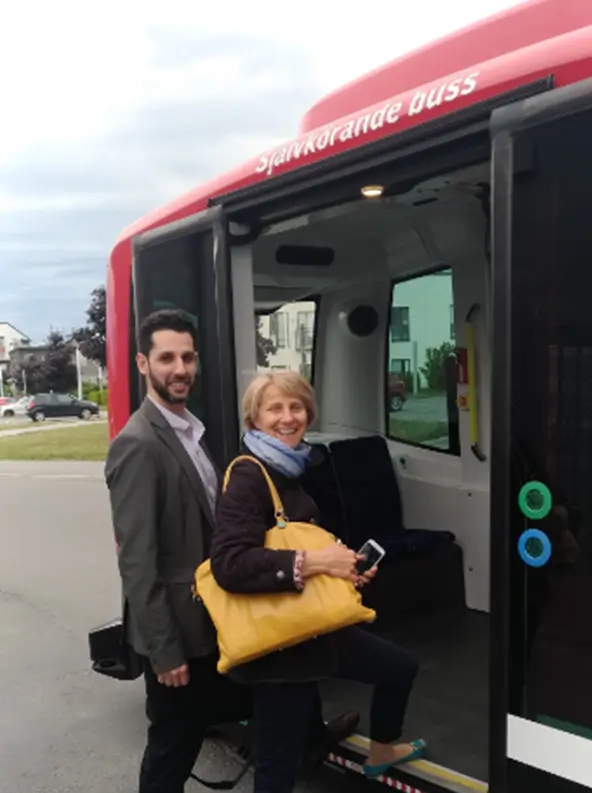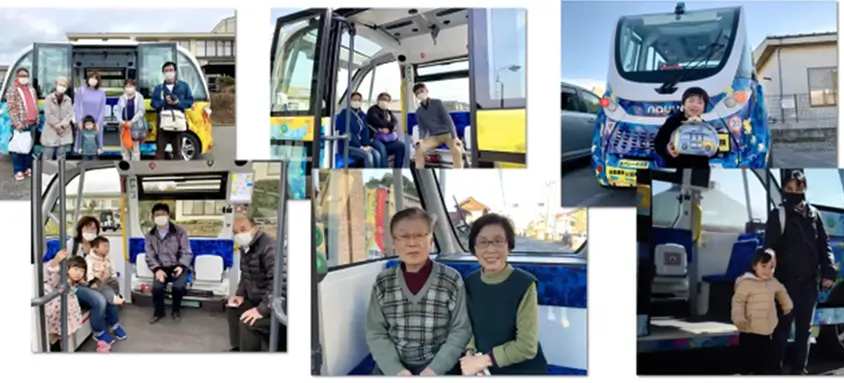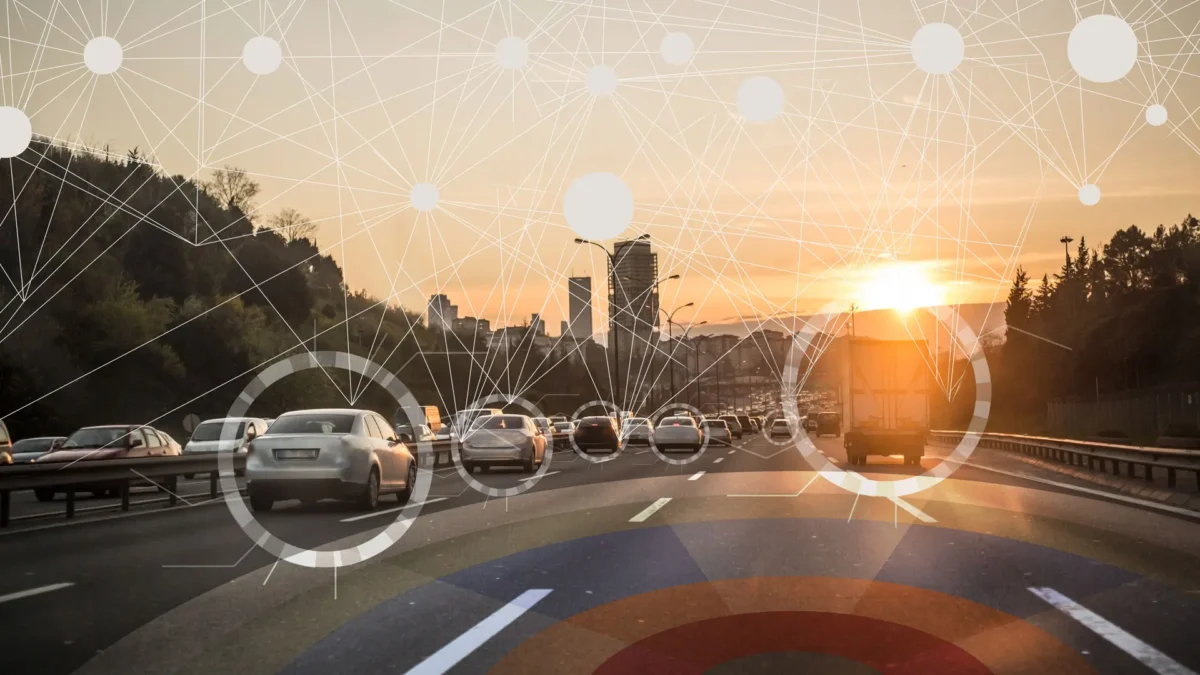Connected and Co-operative Automated Mobility (CCAM) is becoming increasingly more important across Europe and beyond. This has been confirmed not only through the Sustainable Development Goals (SDGs) of the United Nations based on the 2015 Paris agreement, but also through the European Green Deal more recently.
State of play
Autonomous and Connected Transport trials are taking place worldwide focusing on Automated and Autonomous Vehicles (AVs), Electric Vehicles (EVs), Mobility-as-a-Service (MaaS), drones to name a few. Cities and private companies have already started competing in this field, which includes large well-known companies like one of the most highly valued companies worldwide (Tesla) to small start-ups in remote parts of Europe. The sector has made significant leaps in the last five years, but this has resulted on an intense focus on the actual technology, often neglecting the user element.
As data become more important in this domain and Artificial Intelligence (AI) evolved, Europe has a key role to play regarding wider issues such as governance, ethics, liability, and business models. The European Union has issued relevant guidelines about AI and ethics in 2020, since it takes much longer to develop frameworks and guidelines about transport and mobility. Until today there is limited research regarding the wider implications of the deployment of such vehicles, the relevant infrastructure requirements, as well as the length of the transition period, particularly regarding the human and environmental impact.
Wider implications
In this context, WISE-ACT aims to investigate the wider impacts of Connected and Cooperative Automated Mobility, and to share the best practice on how to evaluate them. The WISE-ACT COST Action, which stands for Wider Impacts and Scenario Evaluation of Autonomous and Connected Transport, is a collaborative research network with around 200 experts in 42 countries. Launched in October 2017, this pluri-disciplinary network gathers experts in Europe, Australia, Brazil, Canada, New Zealand, and the United States to focus on travel behaviour, car sharing, travel time use and the future of public transport.

“A key challenge for Autonomous and Connected Transport experts is to educate policymakers, businesses and citizens about the opportunities and challenges arising. This can be achieved through sharing best practices which facilitate the co-creation of our common future in urban and rural areas”, says Dr Nikolas THOMOPOULOS who chairs the Action.

Chair and Vice Chair, Dr Nikolas THOMOPOULOS, and Prof. Cristina PRONELLO during the WISE-ACT meeting in Stockholm.
Since the Action objective is to identify, review, develop and evaluation framework, sustainability has been at its core. The AV trials database which WISE-ACT started in 2017 is one of the most extensive such databases, which aims at highlighting the links of Autonomous and Connected Transport with sustainability. In combination with the WISE-ACT Glossary, the WISE-ACT Atlas will be the two core outputs at the end of this Action.


In 2019 WISE-ACT hosted the Idea Jam competition. This was a unique opportunity to join an international community of experts and work in addressing the challenges of Autonomous and Connected Transport, which attracted 40 participants from 16 countries. The winning team presented their solution to facilitate the co-existence of cyclists with autonomous vehicles in Paris which is a city heavily promoting active travel. WISE-ACT offered the opportunity for Early Career Researchers to experience AV trials first-hand by hosting Training Schools organised by the Technion and Aalto University, in collaboration with the European Institute and Technology Urban Mobility.

Other activities based on noteworthy contributions by Action participants across the world include the WISE-ACT survey and focus groups, which were launched before the COVID-19 pandemic and were completed during the global lockdowns. These activities largely benefitted by the collaboration with the European Commission Joint Research Centre experts in Italy, which resulted in WISE-ACT offering a lot of the questions used in the relevant Eurobarometer survey which was published in 2020.
Last June, Urbanism Next Europe, which explores the multi-level impacts of emerging technologies, has been hosted in Rotterdam and offered a platform to exchange views about best practice from Europe, Asia, North and South America. WISE-ACT held a session on how sustainability and road automation can co-exist in future Urban transport? Experts included Prof. Bert van Wee, Prof. Nick Reed, Wolfram Klar, Dr Wolfgang Backhaus, who gave an insight about ethical dilemmas and ongoing city planning surrounding Autonomous and Connected Transport.
WISE-ACT has managed to demonstrate that despite the challenges, technology can be a means to meet wider policy goals such as sustainability, while being inclusive.
“Our Action activities have highlighted that despite the challenges, it is crucial to offer the opportunities for engineers and IT experts to collaborate with experts in the social sciences and humanities. The WISE-ACT webinars have been a particularly rewarding experience for Early Career Researchers and those based in Inclusiveness Target Countries, where such silos are still dominant”, says Dr Tibor PETROV, who is the Science and Communications Co-ordinator of the Action.
Coming up
The final conference of the Action is already being planned during the next EU Connected and Automated Driving Conference.
Further readings and other activities
Autonomous and Connected Transport – The User Perspective
Environmental Evaluation of the New Forms of Mobility: Electric, Shared, Autonomous
Edited book volume in Elsevier series Advances in Transport Policy & Planning: Milakis, D., Thomopoulos, N., van Wee, B. (2020) Policy Implications of Autonomous Vehicles,
Oxford: Academic Press.
Urbanism Next Europe all sessions presentations are available here.
Additional information
View the Action website here
View the network website here
